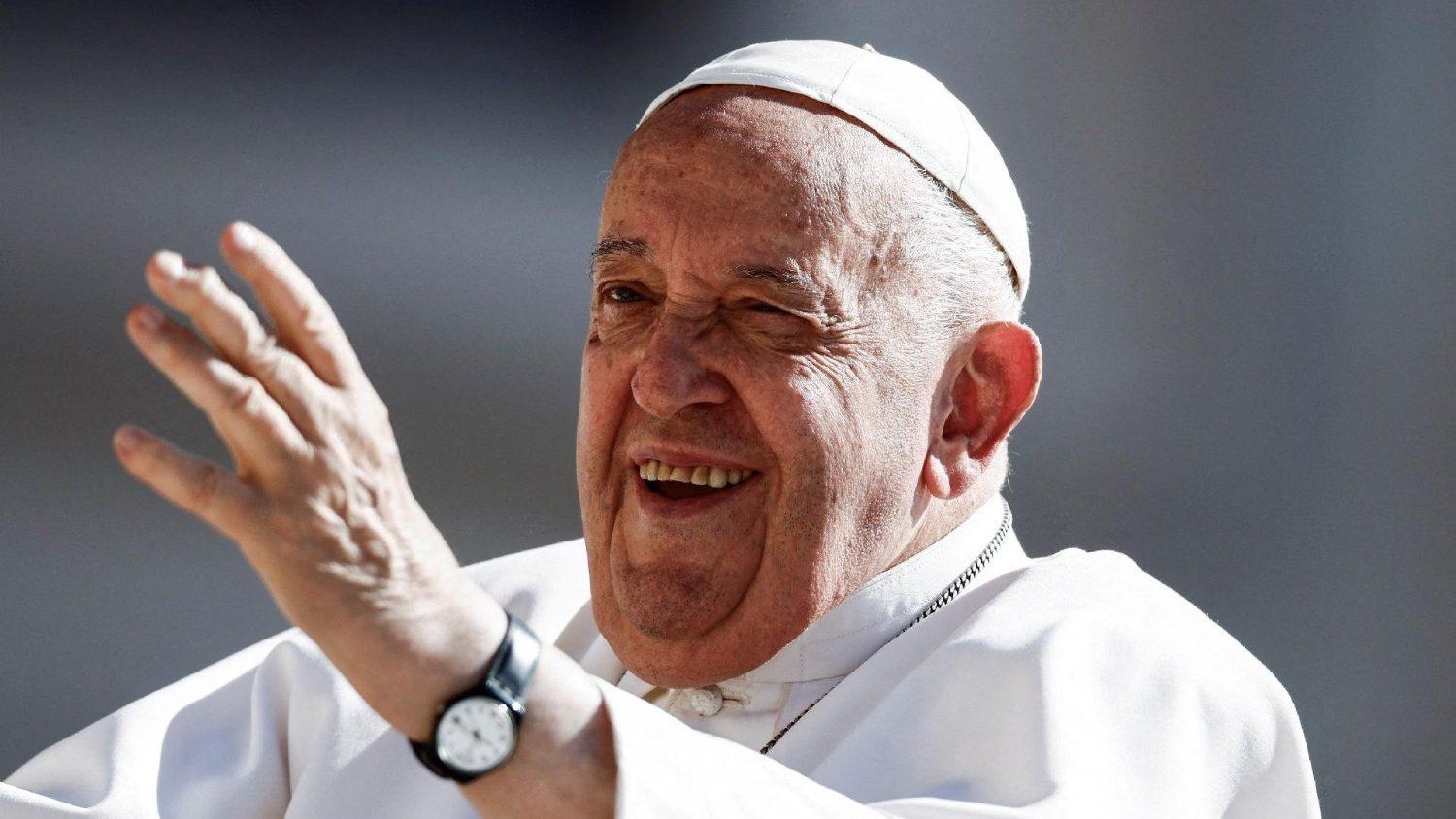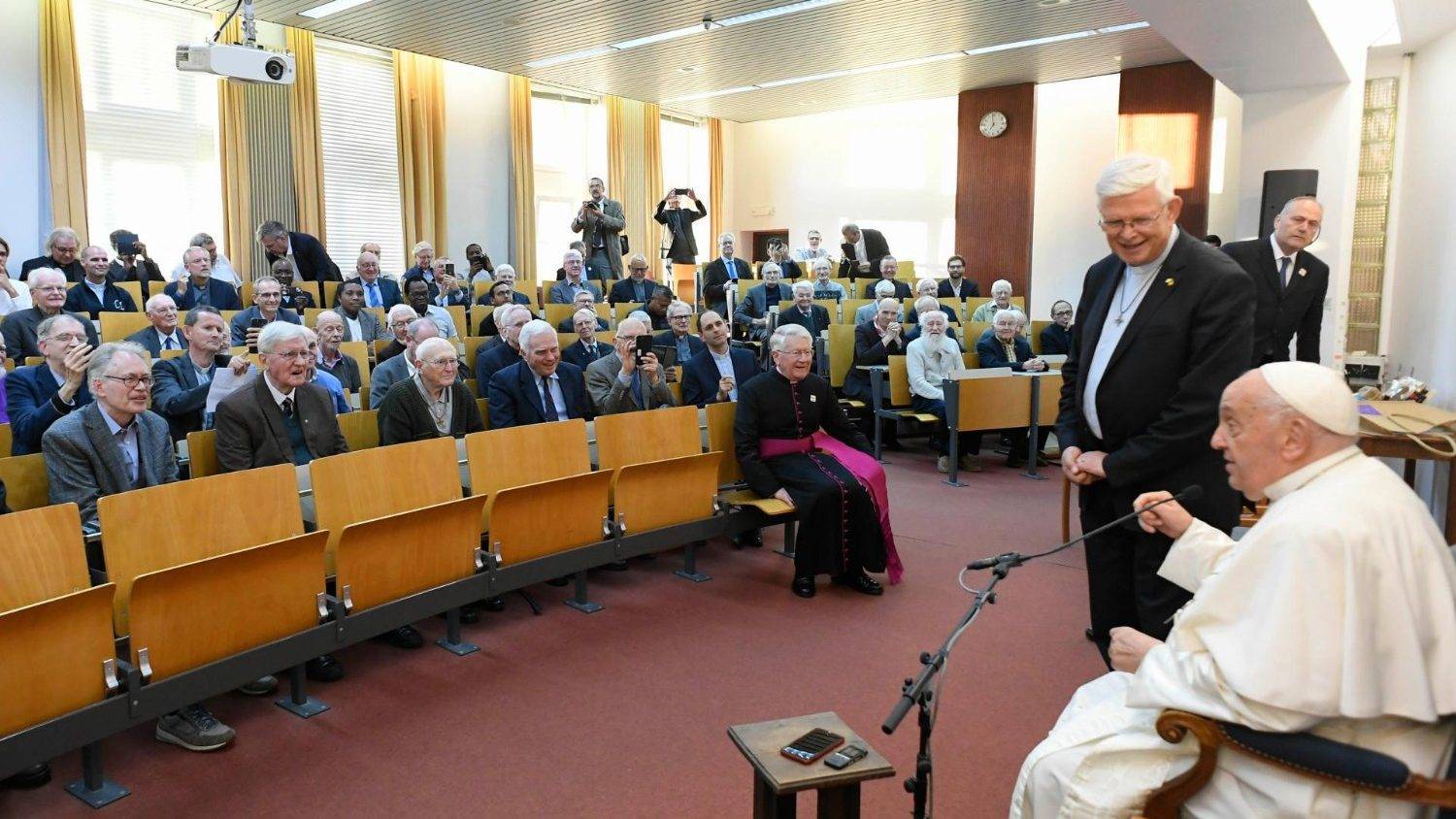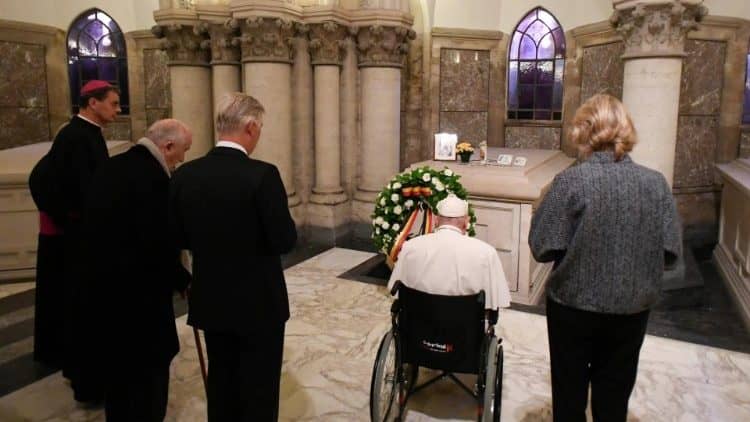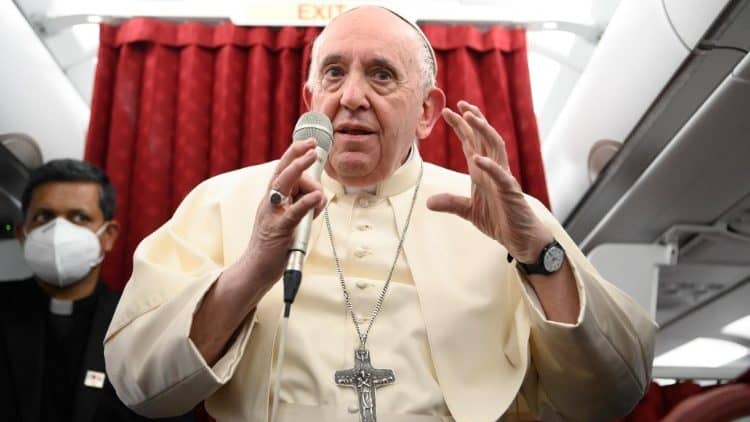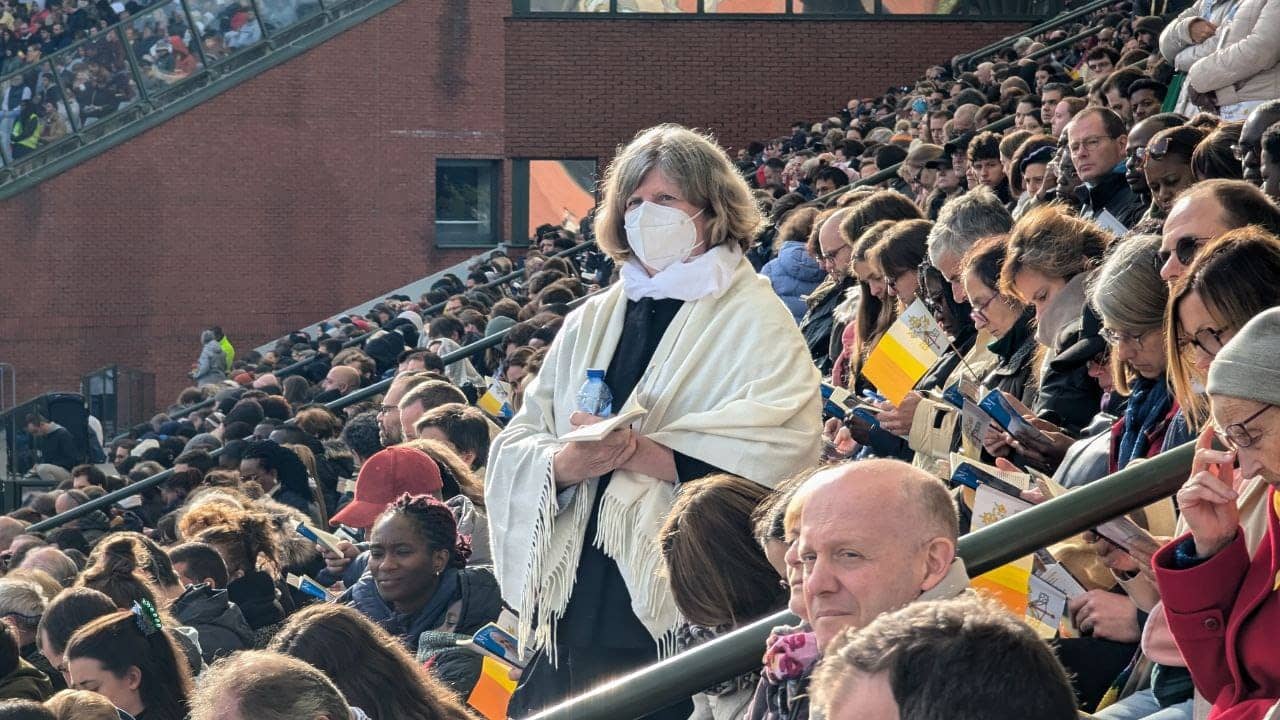ROME – In a country still reeling from a deep clerical sexual abuse crisis, Pope Francis on Saturday bitterly acknowledged that such abuse “generates atrocious suffering and wounds,” vowing that the path of reform includes learning from survivors.
The realities of abuse, the pontiff said, can even “undermine the path of faith.”
“There is a need for a great deal of mercy, to keep us from hardening our hearts before the suffering of victims, so that we can help them feel our closeness and offer all the help we can,” the pope said.
“We must learn from them … to be a Church at the service of all without belittling anyone,” Francis said. “Indeed, one of the roots of violence stems from the abuse of power when we use the positions we have to crush or manipulate others.”
The pontiff’s remarks came during a session with bishops, priests, deacons, consecrated persons, seminarians and pastoral workers in Belgium, staged in the Basilica of the Sacred Heart in the Brussels neighborhood of Koekelberg.
The comments came a day after Belgian Prime Minister Alexander De Croo publicly challenged the pope over the abuse scandals, and also a day after Francis’s meeting with abuse survivors was dismissed as mere PR by an advocacy group which added, “An apology without effective reform is worse than meaningless. It’s disrespectful.”
RELATED: Advocates say pope’s meeting with abuse survivors doesn’t go far enough
In the moment Saturday morning, the pope was reacting to questions put to him by Mia De Schamphelaere, who works in a Flemish center for abuse victims.
“How can the Church see, recognize and learn from the wounds of survivors?” De Schamphelaere asked the pope.
“How can we build an ecclesiastical culture in which everyone, young and old, men and women, feel safe, protected and cared for, in which openness and mutual respect come naturally?” she asked.
“How can every authority remain balanced, and every policy become transparent?” De Schamphelaere asked as well.
Francis thanked De Schamphelaere “for the great effort you make to transform anger and pain into help, closeness and compassion.”
In remarks to civil authorities in Belgium on Friday, Pope Francis called sexual abuse “a scourge that the Church is addressing firmly and decisively by listening to and accompanying those who have been wounded, and by implementing a prevention program throughout the world.”
RELATED: Pope in Belgium calls for peace, condemns abuse, forced adoptions
Belgium has been especially hard hit by the clerical abuse scandals, including the notorious case of former Bishop Roger Vangheluwe, who stepped down after admitting to abusing minors, including two of his own nephews.
In another section of his remarks on Saturday, Pope Francis appeared to try to lay out a template for living the faith in a deeply secular culture. Belgium is consistently rated as one of the most thoroughly secular societies on earth, with a real Mass attendance rate possibly as low as three percent.
Saying all that creates a crisis for the Church, Francis insisted that doesn’t mean turning out the lights.
“We have moved from a Christianity located within a welcoming social framework to a ‘minority’ Christianity, or better, a Christianity of witness,” he said.
“This requires the courage to undertake an ecclesial conversion for enabling those pastoral transformations that concern our habitual ways of doing things,” the pope said, “and the language in which we express our faith, so that they are truly directed to evangelization.”
Francis said priests must play a special role in this transformation.
“Priests need courage in order to be priests who are not just preserving or managing a past legacy, but pastors who are in love with Jesus Christ and who are attentive to responding to the often implicit demands of the Gospel as they walk with God’s holy people,” he said.
“In doing so, they are sometimes ahead of their people, sometimes in their midst and sometimes behind them,” he said.
The pope also called for a deeper appreciation for diversity in the Church.
“There is room for everyone in the Church, and no one should be a mere copy of anyone else,” he said. “Unity in the Church is not uniformity, but rather finding harmony within diversity!”
As for the leitmotif of the Church in a sometimes hostile culture, Francis, quoting his predecessor Benedict XVI, said it must be joy.
“Long before he became pope, Joseph Ratzinger wrote that one particular rule of discernment is, ‘Where joy is lacking, and humor dies, not even the Holy Spirit remains […] and vice versa: Joy is a sign of grace’,” he said.
“Let your preaching, your celebrations, your service and apostolates radiate the joy of your hearts, for this will stir up questions and attract even those who are far away,” Francis said.
